A space for sympathy, sanity and peaceArtist and Activist calling to end the ongoing war, remove settlers and Israeli occupation in the west bank and for a long-term, two state solution for Palestine and Israel 🇵🇸🇮🇱
Don't wanna be here? Send us removal request.
Text
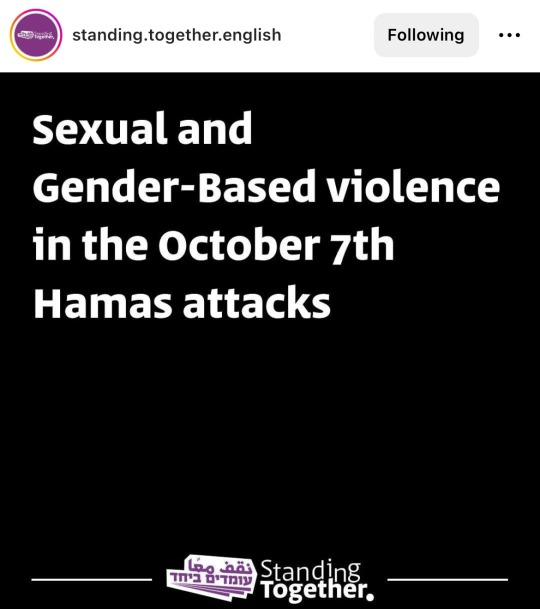
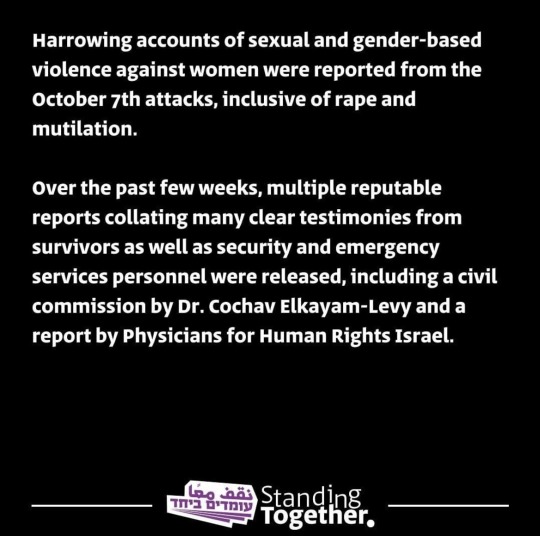
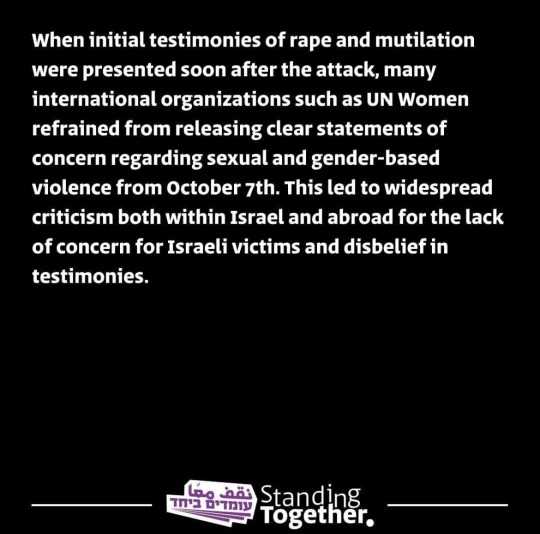

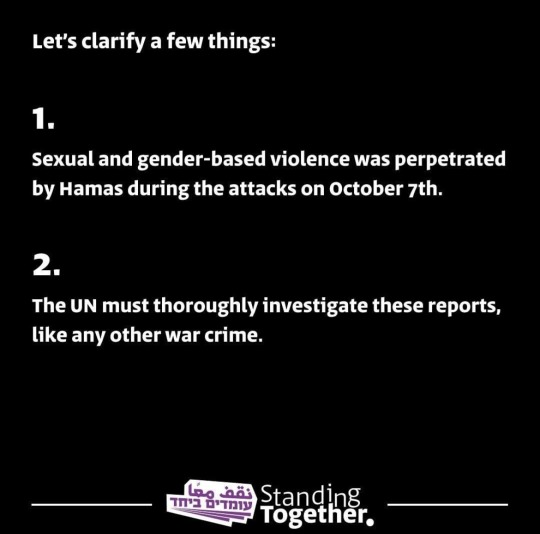
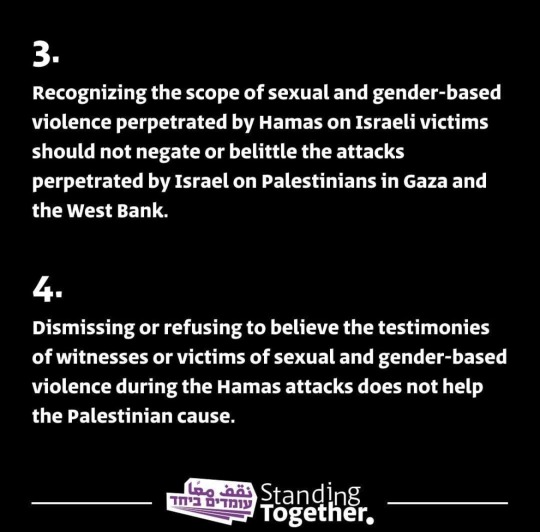
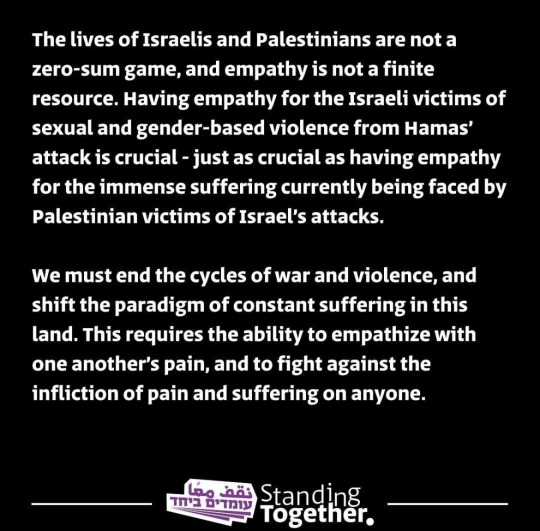

Standing Together is a grassroots movement mobilizing Jewish and Palestinian citizens of Israel in pursuit of peace, equality, social and climate justice in Israel/Palestine.
From IG:
@standing.together.english
@standing.together.movement (Arabic/Hebrew)
23 notes
·
View notes
Text
Netanyahu is a mad man drunk on power and I will not allow myself, the Jewish diaspora, or the Israeli citizens who largely didn't even vote for him to be blamed for his tyranny
He needs to be stopped. Any argument regarding saving lives in this war that does not pinpoint stopping Bibi as the #1 issue is not a serious argument.
224 notes
·
View notes
Text
1 note
·
View note
Text
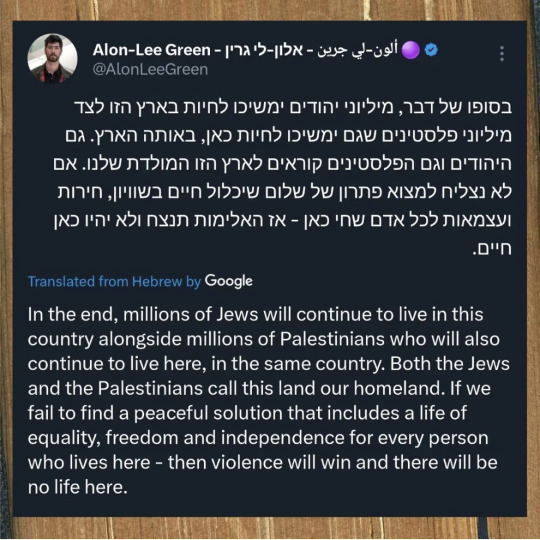
Spreading hate will not bring peace nor freedom.
Our addiction to online scrolling makes this generation hungry for the extreme.
Choosing one side is choosing to make this conflict continue. Solution will not come with war. We need an agreement, from both sides to put down their weapons and put aside their hate and hunger for revenge.
We need an agreement from both sides to give up their religious ideologies of owning the entire land, so we can find a long term solution- where both countries can live free and safe from the other.
7 notes
·
View notes
Text
Once I finish killing this guy the cycle of violence will be over, trust me guys
59K notes
·
View notes
Text
Incredibly important article for anyone with an opinion on the war in Palestine/Israel




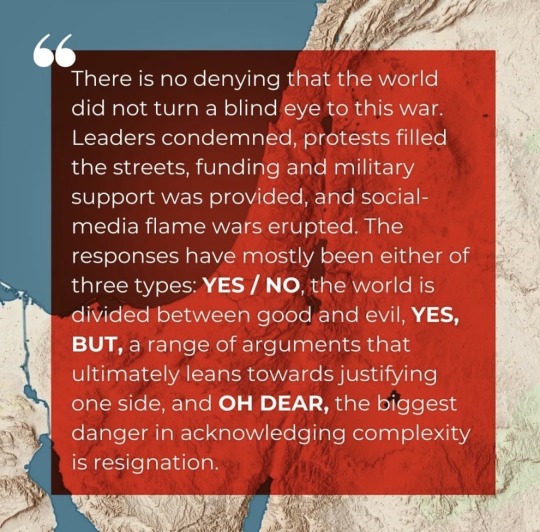
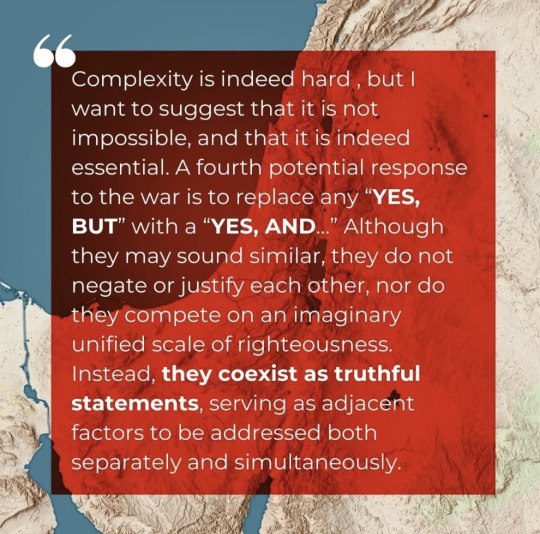
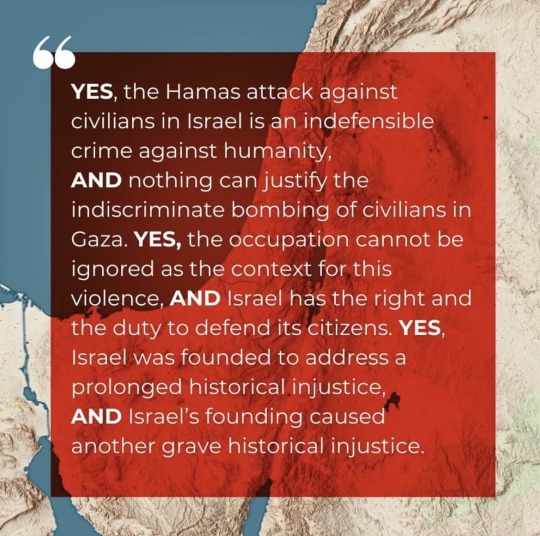

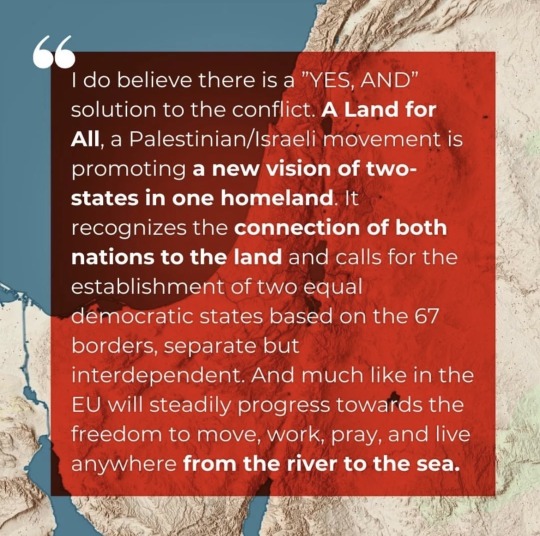
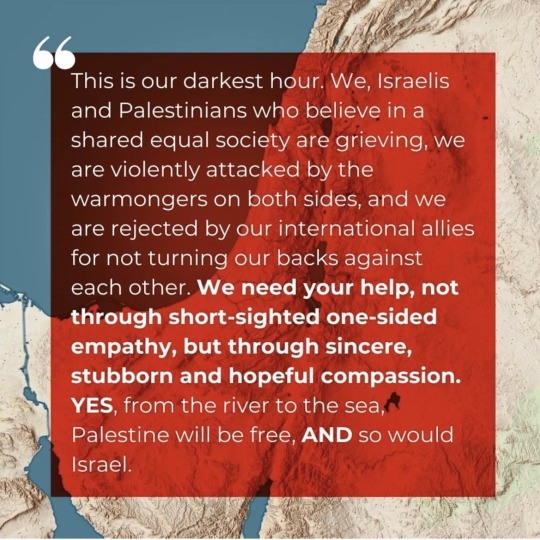
Mushon Zer-Aviv is an Israeli activist and designer.
6 notes
·
View notes
Text










Mushon Zer-Aviv is an Israeli activist and designer.
6 notes
·
View notes
Text









The words of Elica Le Bon, Iranian attorney, activist and musical artist.
From her Instagram: @elicalebon
10 notes
·
View notes
Text
Twenty years later after many Arab cities had fallen, the thoughts I was sharing in Hebrew with a friend at a restaurant did not please a man sitting there, and he set to defending Israeli oppression with what he considered an irrefutable argument. He said you don't know these Arabs, and if you knew them, you wouldn't speak about justice in this manner. I asked him to tell me more. He knit his brow and said, "Have you heard of a village called al-Birwa?" "No," I answered. "Where is it?" "You won't find it on this earth," he said. "We blew it up, raked the stones out of its earth, then plowed it until it disappeared under the trees." "To cover up the crime?" I asked. He corrected me, protesting, "No, it was to cover up its crime, that damned place." "And what was its crime?" I asked. "It resisted us," he answered. "They fought back, costing us many casualties, and we had to occupy it twice. The first time we were eating dinner, and the tea was hot. The villagers surprised us and took it back. How could we accept such an insult? You don't know the Arabs, and now I'm telling you." I told him I was Arab, and that it was my village. He apologized politely but awkwardly, talked of peace, then invited me to his shop, where he was auctioning off furnishings and household utensils plundered from the city of Quneitra.
— Mahmoud Darwish, Journal of an Ordinary Grief, translated from the Arabic by Ibrahim Muhawi
8K notes
·
View notes
Text
i am once again asking you to support standing together
8K notes
·
View notes
Text

Asim Abu Shakra, 1989, “Sabra”
Asim Abu Shakra was born in Umm al-Fahm in 1961 to a traditional muslim family, and in 1982 he moved to Tel-Aviv to study art.
The image of the Sabra is central to Asim Abu Shakra’s oeuvre, and is depicted in many of his paintings.
The Sabra is a thorny plant indigenous to the Palestinian countryside and is known for its deep network of roots that makes it practically impossible to uproot.
It has become a popular symbol for both Palestinian and Israeli identity.
The Sabra cactus is often seen as a natural fence protecting Arabic villages and agricultural fields.
At the start of the 20th century the Sabra (in Hebrew - Tzabar) became a term that defines any Jew born in the land of Israel/Palestine.
Abu Shakra returns the Sabra to its original legacy, but places it restricted to the confines of the pot, preventing it from rooting.
As a Palestinian living in Tel Aviv, the artist felt his personal story mirrored that of the Sabra - separated from its cluster, removed from the wilderness and placed in a small pot - thus estranged.
Abu Shakra was diagnosed with cancer in his 20’s. In his final years the Sabra also symbolized a detached loneliness and a closeness to death. He passed away at only 28 years old, and has since been accepted into the canon of Palestinian artists, as well as being deeply appreciated in the Israeli art community.
When asked, he defined himself, in this order: “Painter, Arab, Israeli”
This work currently stands in the Israel Museum in Jerusalem.
#palestine#israel#art#israeli art#paletinian art#israeli arabs#umm al fahm#free palestine#israeli palestinian conflict#arab israeli conflict
1 note
·
View note
Text








Standing Together is a grassroots movement mobilizing Jewish and Palestinian citizens of Israel in pursuit of peace, equality, social and climate justice in Israel/Palestine.
From IG:
@standing.together.english
@standing.together.movement (Arabic/Hebrew)
#palestine#free palestine from hamas#free palestine#politics#me too#me too movement#metoounlessurajew#israel#feminism#standing together#tw violence#tw r4p3#tw sexual assault
23 notes
·
View notes
Text


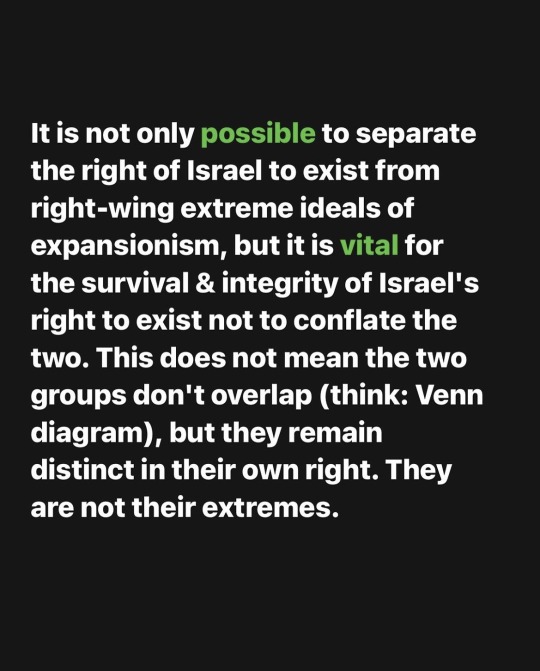



The words of Elica Le Bon, Iranian attorney, activist and musical artist.
Instagram @elicalebon
3 notes
·
View notes
